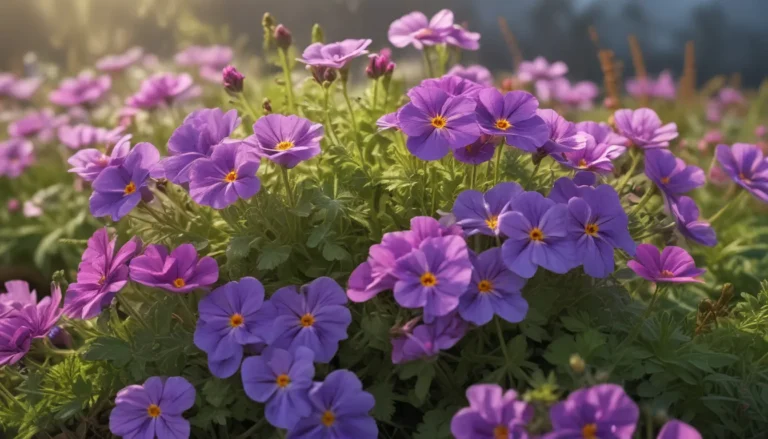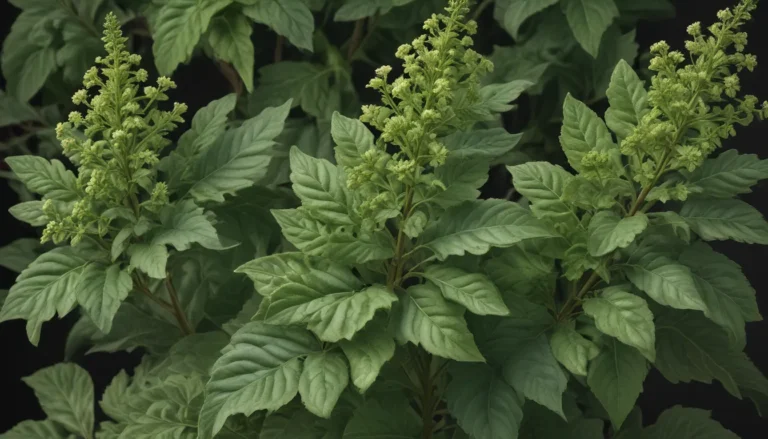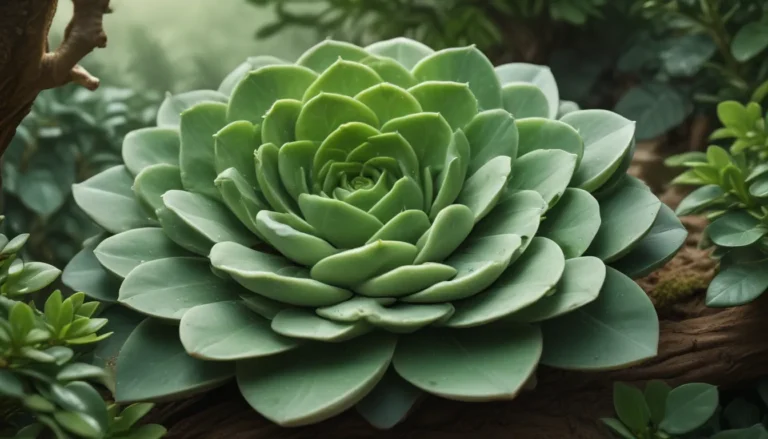The pictures we use in our articles might not show exactly what the words say. We choose these pictures to make you interested in reading more. The pictures work together with the words but don’t take their place. The words still tell you the important facts.
Welcome to the captivating realm of Wormwood, also known as Artemisia absinthium. This perennial herb has enticed human curiosity for centuries, with its rich history, diverse uses, and mythical allure. In this enlightening article, we will embark on a journey to explore 18 astounding facts about this extraordinary plant. Whether you are a nature enthusiast, herbal medicine aficionado, or simply intrigued by the wonders of the natural world, prepare to be fascinated.
Unveiling the Mysteries of Wormwood
Wormwood, scientifically known as Artemisia absinthium, is a perennial herb native to Europe, Asia, and Northern Africa. With its distinct bitter taste and robust aroma, this herb has a rich history steeped in tradition and folklore. Let's delve into the fascinating world of Wormwood and uncover its remarkable properties and uses that continue to captivate people worldwide.
The Intriguing History of Wormwood
Throughout centuries, Wormwood has been revered for its medicinal and culinary virtues. It has been an essential ingredient in the production of absinthe, a popular green-colored spirit that gained popularity in the late 19th century. Artists and bohemian circles embraced absinthe, adding to Wormwood's mystique.
Medicinal Marvels of Wormwood
Wormwood boasts a long history of medicinal use, with compounds like absinthin and anabsinthin believed to offer therapeutic benefits. From aiding digestion to combating parasitic infections and alleviating symptoms of malaria, Wormwood's medicinal prowess is truly remarkable.
Folklore and Symbolism Surrounding Wormwood
In various cultures, Wormwood has been associated with mysticism and magic. It was believed to ward off evil spirits, bring good luck, and symbolize bitterness and calamity, as mentioned in the Bible. The herb's folklore and symbolism add layers of intrigue to its enigmatic nature.
Versatile Uses of Wormwood
Beyond its role in traditional medicine, Wormwood serves as a natural insect repellent, protecting against mosquitoes and other pests. Its bitter flavor enhances herbal liqueurs, aperitifs, and culinary dishes, while also being utilized in natural dyes and as a flavoring agent in alcoholic beverages.
Exploring the Diverse Applications of Wormwood
Wormwood's resilience allows it to thrive in challenging conditions, making it a valuable addition to gardens and landscapes. Its presence in traditional Chinese medicine and Ayurveda highlights its cooling properties and energy-balancing effects. Additionally, ongoing research hints at Wormwood's potential anti-cancer properties and benefits for menstrual health.
Gardening with Wormwood
Wormwood's ability to grow in poor soil and withstand drought makes it a versatile plant for landscaping and ornamental purposes. Its yellow flowers attract pollinators like bees and butterflies, contributing to ecosystem health and biodiversity.
Culinary and Medicinal Delights
In cooking, Wormwood's distinct bitterness adds depth to dishes and beverages. While its use in absinthe is well-known, Wormwood's potential benefits for digestion, liver health, and menstrual discomfort make it a valuable ally in herbal remedies.
Herbal Marvels and Beyond
Wormwood's anti-parasitic properties and anti-inflammatory effects make it a versatile herb in traditional medicine systems. Its usage in pest control, crafting, and potpourri expands its applications beyond the realm of herbalism, offering a myriad of creative possibilities.
Embracing the Enchantment of Wormwood
Wormwood's allure lies in its unique characteristics, from its bitter taste to its vibrant folklore and medicinal virtues. As you immerse yourself in the world of Wormwood, remember to exercise caution due to its potent nature. With proper knowledge and guidance, this extraordinary plant can unlock a world of possibilities and discoveries.
FAQs: Unraveling the Mysteries of Wormwood
Q: What is wormwood?
A: Wormwood, also known as Artemisia absinthium, is a perennial herbaceous plant with grayish-green leaves and small yellow flowers.
Q: How is wormwood historically significant?
A: Wormwood has a long history of use in ancient civilizations for its protective, purifying properties in religious rituals and traditional medicine.
Q: What are the medicinal properties of wormwood?
A: Wormwood is known for its antibacterial, antifungal, anti-inflammatory, and antiparasitic effects, aiding digestion, liver health, and menstrual discomfort.
Q: Is wormwood safe for consumption?
A: While generally safe in moderation, wormwood contains thujone, a potentially toxic compound. Consult a healthcare professional before incorporating it into your regimen.
Q: Can wormwood be grown in a garden?
A: Yes, wormwood thrives in well-draining soil and full sun but can be invasive. Monitor its growth carefully to maintain control.
Q: Is wormwood effective for pest control?
A: Yes, wormwood's insect-repellent properties make it an excellent deterrent for pests like moths, fleas, and mosquitoes.
Q: Can wormwood be used in cooking?
A: Yes, wormwood is used as a flavoring agent in culinary dishes and beverages to add depth and complexity. Use sparingly to avoid overpowering flavors.
Q: Are there any other uses for wormwood?
A: Beyond medicinal and culinary applications, wormwood can be used in crafting, potpourri, and as a natural dye, showcasing its versatility and intrigue.
Conclusion: Embracing the Enigmatic World of Wormwood
In conclusion, Wormwood stands as a testament to nature's boundless wonders, captivating and inspiring all who encounter its mystique. Whether exploring its rich history, unlocking its medicinal secrets, or embracing its versatile uses, Wormwood invites us to delve deeper into the enchanting realm of herbalism. As you continue your journey of discovery, remember to approach Wormwood with respect and appreciation for its remarkable properties and profound legacy.






